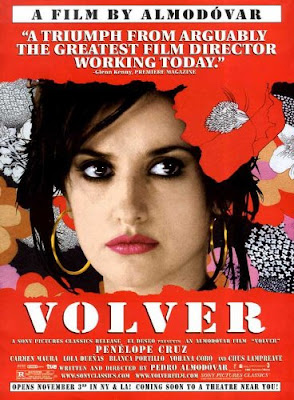Philippe Garrel
crafted a magnificent example of personal filmmaking – thematically and formally
– with the haunting, introspective and intensely self-critical masterpiece I Don’t Hear the Guitar Anymore. This
extraordinary chapter in his faux autobiographical series, which he’d begun
with L’Enfant Secret and Emergency Kisses, touched upon diverse
subtexts – impermanence, the veneer of marital bliss, reconciliations between
past and present, how time often converts a bohemian into a bourgeois before
one even realizes it. Melancholic and subtly affecting, yet avowedly
unsentimental in its portrayal of complex transitions in relationships, it was
lacerating in its self-infliction on incredibly personal memories. Dedicated to
his former lover Nico, the German pop-icon with whom he had a decade-long
affair, the film chronicled their turbulent journey filled with emotional
upheavals and poignant intimacy, including trysts with reckless freedom,
disregard for conventional mores, heroin addiction, moments of doubt and
insecurity, falling apart, and futile attempts at moving on. Johanna ter Steege
gave an unforgettable turn as the frizzy-haired, freckled, impulsive, self-destructive
and tragically beautiful Marianne, with whom Gérard (Benoît Régent) has a
doomed affair. When their relationship collapses, he gets married to Aline (in
a courageous turn by Garrel’s then-wife Brigitte Sy) – but Marianne continues
to haunt both even in her absence, and more so when she makes a fleeting
reappearance into their lives that ends up putting in disarray the fragile equilibrium
in their domestic bliss, ironically presaging Garrel and Sy’s real-life marital
dissolution as well. Shot in muted, washed out colours, and set to a low-key,
mournful score, I was almost expecting Leonard Cohen’s heartbreaking So Long Marianne to be played as the end
credits rolled for this alternately blazing and poetic pièce de résistance.
Director: Philippe Garrel
Genre: Drama/Romantic Drama/Marital Drama/Film a Clef
Language: French
Country: France
Tuesday, 10 September 2019
Wednesday, 4 September 2019
Volver [2006]
Almodóvar crafted a gem
suffused with intimacy, seductive beauty, melancholic pangs, heartbreaking
moments, strong feminist undertones and a teasing hint of magic realism, with the
charming and engrossing Volver. While
it might not appear to have same degree of jaw-dropping bravura as All About My Mother had, it nevertheless
formed a fabulous combo with the latter in the way it celebrated womanhood, in
its assured use of melodrama to capture the characters’ neuroses and pathos,
and in the string of difficult and discomfiting themes it covered, albeit
cloaked with a delectable layer of joie
de vivre – viz. sexual abuse, pedophilia, unreconciled memories, complex
familial bonds, mortality, grief and loss. The intricately weaved tale is
centered on its ensemble working-class women characters – Raimunda (Penélope
Cruz), a striking, luscious, straight-talking and enterprising woman who,
through a mix of smarts, allure, doggedness and culinary skills, must
financially survive and also protect her daughter (Yohana Cobo) who’s
accidentally committed a murder; her naïve, fidgety sister Sole (Lola Dueñas)
who runs a beauty parlour in her tiny apartment; their gentle-natured mother Irene
(the former Almodóvar regular Carmen Maura) who died 5 years back in a fire
accident and whose ghost has returned to reconnect with her daughters; and Raimunda’s
childhood friend Agustina (Blanca Portillo) who’s afflicted with cancer and is searching
in futility for her hippie mother who’s been missing for years. Luminously
photographed, comprising of a sumptuous score, and set in the La Mancha region
where the Spanish giant was born, this sensual, infectious and warm-hearted
film contains excellent turns by all, led by a magnificent performance by Cruz
in the way she effortlessly complemented toughness of spirit with deep
emotional vulnerabilities.
Director: Pedro Almodovar
Genre: Drama/Comedy/Family Drama/Ensemble Film
Language: Spanish
Country: Spain
Director: Pedro Almodovar
Genre: Drama/Comedy/Family Drama/Ensemble Film
Language: Spanish
Country: Spain
Labels:
2000s,
5 Star Movies,
Comedy/Satire,
Drama,
Essential Viewing,
Spanish Cinema
Monday, 2 September 2019
Sacred Games (Season 2) [2019]
The moody, compelling
Season 1 of the Netflix original Sacred Games had laid out a sprawling, operatic, politically provocative and
immensely addictive double-narrative centered around its two protagonists –
sidelined Mumbai cop Sartaj Singh (Saif Ali Khan) defiant on unraveling a
potential terror threat; and the turbulent, spectacular journey of Bombay don
Ganesh Gaitonde (Nawazuddin Siddiqui). The 2nd season continued from
where it left off as the two strands – the present and the past – gradually and
inevitably merge. Sartaj, who’s now heading the against-the-clock
investigation, starts connecting the murky dots which leads him to an enigmatic
religious cult, a promiscuous pedagogue (Kalki Koechlin), a hyper-nationalist rabble
rouser (Girish Kulkarni) and his deceased father. Gaitonde’s eventful saga,
meanwhile, continues 1994 onwards as he’s banished to Mombasa where he becomes
a mobster as well as a henchman on leash for dogged, poker-faced Intelligence Officer
Kusum (Amruta Subhash), begins a strangely affecting telephonic affair with the
sassy, foul-mouthed madam (Surveen Chawla) of a high-end brothel, and becomes
drawn towards a sinister Hindutva “guru” (Pankaj Tripathi) who’s harbouring
apocalyptic plans. While Nawaz continued to be arresting as the hilariously
crude, eccentric and increasingly contemplative force of nature, Saif was excellent
too in portraying Sartaj’s dilemmas, loneliness and grief over estrangement with
his wife (Anupriya Goenka). And, while Tripathi, Kulkarni and Neeraj Kabi (as a
corrupt cop) were good as always, Subhash and Chawla provided the standout
performances this time around. Though still operatic, sprawling, politically
provocative and addictive, the 2nd season lacked the wicked humour,
gleeful unpredictability, frenetic energy and grimy pull of the 1st
season. That, combined with the overused trope of a mastermind villain keen on
nuking mankind for its own good, made this comparatively more formulaic and
banal.
Director: Anurag Kashyap, Neeraj Ghaywan
Genre: Crime Thriller/Gangster/Political Thriller/Police Procedural/TV Series
Language: Hindi
Country: India
Director: Anurag Kashyap, Neeraj Ghaywan
Genre: Crime Thriller/Gangster/Political Thriller/Police Procedural/TV Series
Language: Hindi
Country: India
Subscribe to:
Comments (Atom)





